Write Us
We are just a call away
[ LET’S TALK AI ]
X
Discover AI-
Powered Solutions
Get ready to explore cutting-edge AI technologies that can transform your workflow!

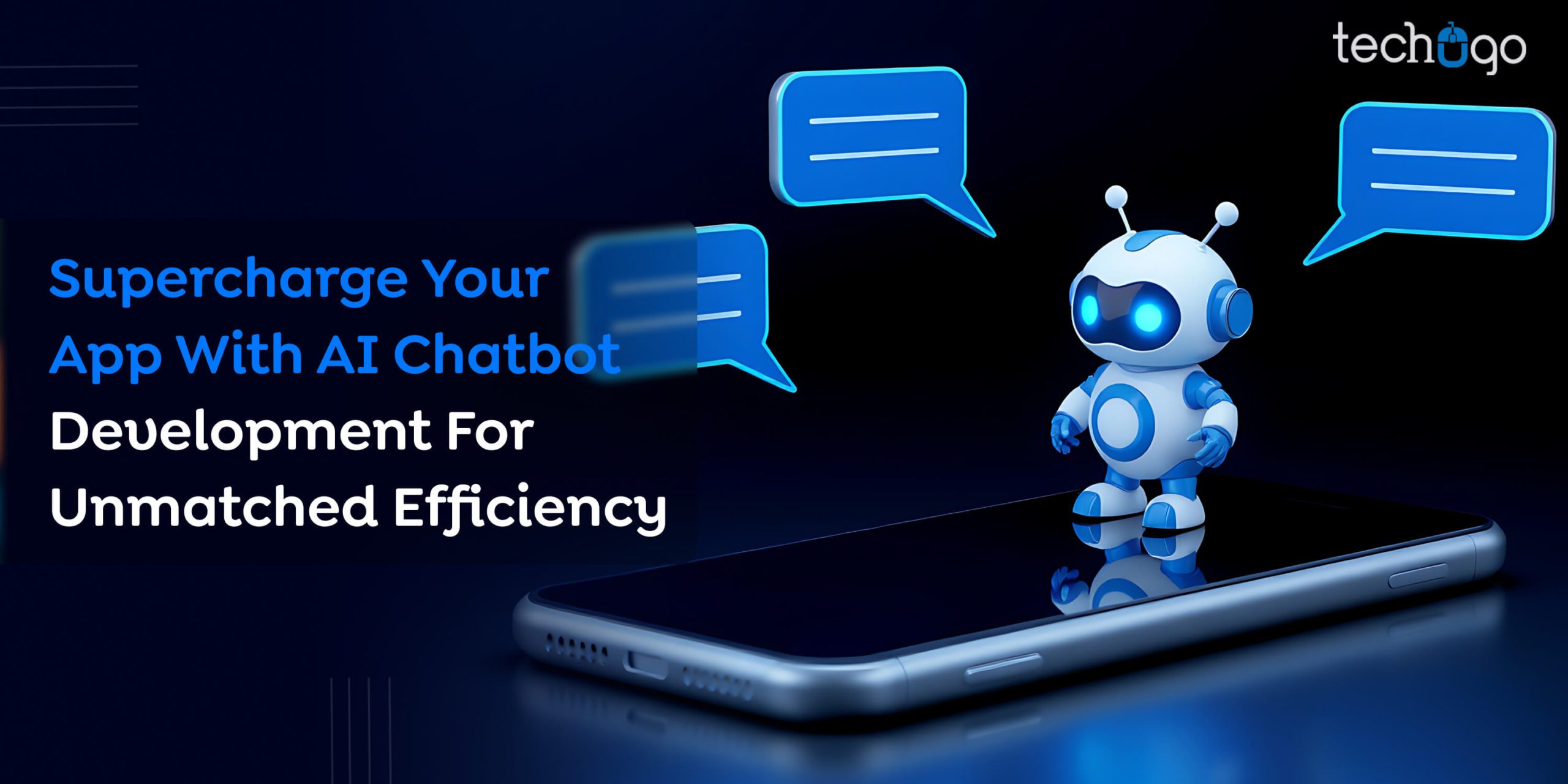
AI has been a game changer for the mobile app industry, fueling expansion and driving competition. The global market for artificial intelligence software has seen a rapid increase over the years and is expected to reach USD 126 billion in 2025.
Entrepreneurs look forward to using Artificial Intelligence in mobile app development. This blog is for you if you’re also looking for information about AI chatbot app development.
We are a global mobile app development service provider. We researched and discussed how to use AI and chatbots to create feature-rich mobile apps. This blog contains detailed information on the role of AI Chatbot Development in 2025 and reasons to incorporate AI in app development. Continue reading to learn more.
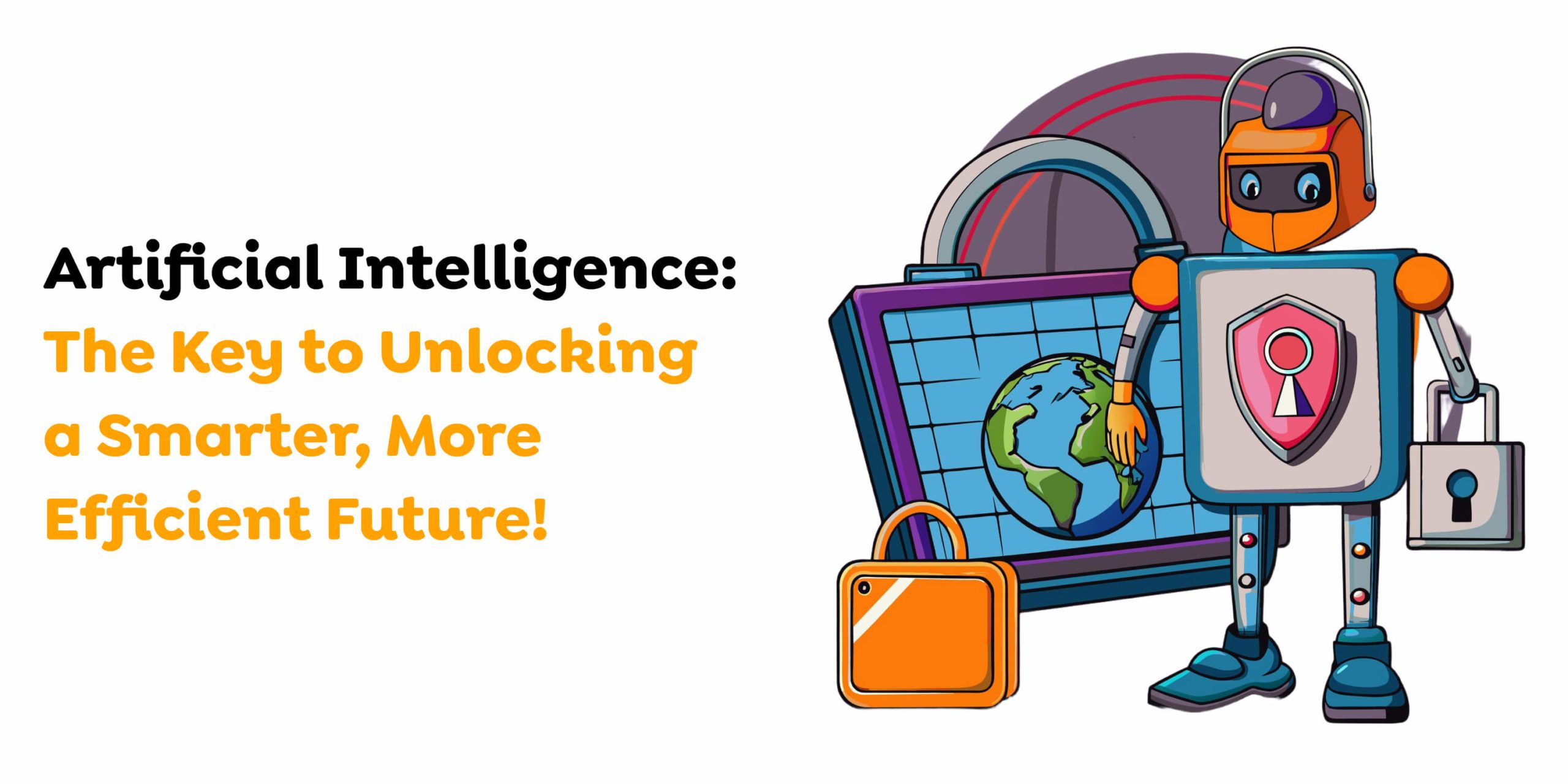
Artificial intelligence (AI) is a term that describes a machine’s ability to imitate or mimic intelligent human behavior, like making decisions, analyzing, and making judgments. Artificial intelligence, rooted in computer science and used to be a controversial area of philosophy, has been rapidly developed and adopted by society. Chatbot development services for customer support, industrial robots, and digital voice assistants are just a few examples. They can all be found in smartphones and smart speakers.
Statista has published a report that the global market for Artificial Intelligence will surpass $126 billion in 2025 AI is the future. This is especially true in software development, with nearly all tech companies throwing their weight behind AI, hoping to dominate this industry. Some are closer than others.
This technology is a leading innovator in artificial intelligence. Its capabilities enable customized interfaces, machine-assisted routines, and improved end-user incorporation. The majority of customers (over 60%) now select automated self-service channels when they have questions.
Moreover, AI technology demonstrates autonomous learning functions based on analyzed information along with independent decision-making capabilities. Existing AI applications substantially benefit mobile app development. Will AI make mobile apps more user-friendly? If yes, how will AI transform the mobile app development industry? This article is about it.
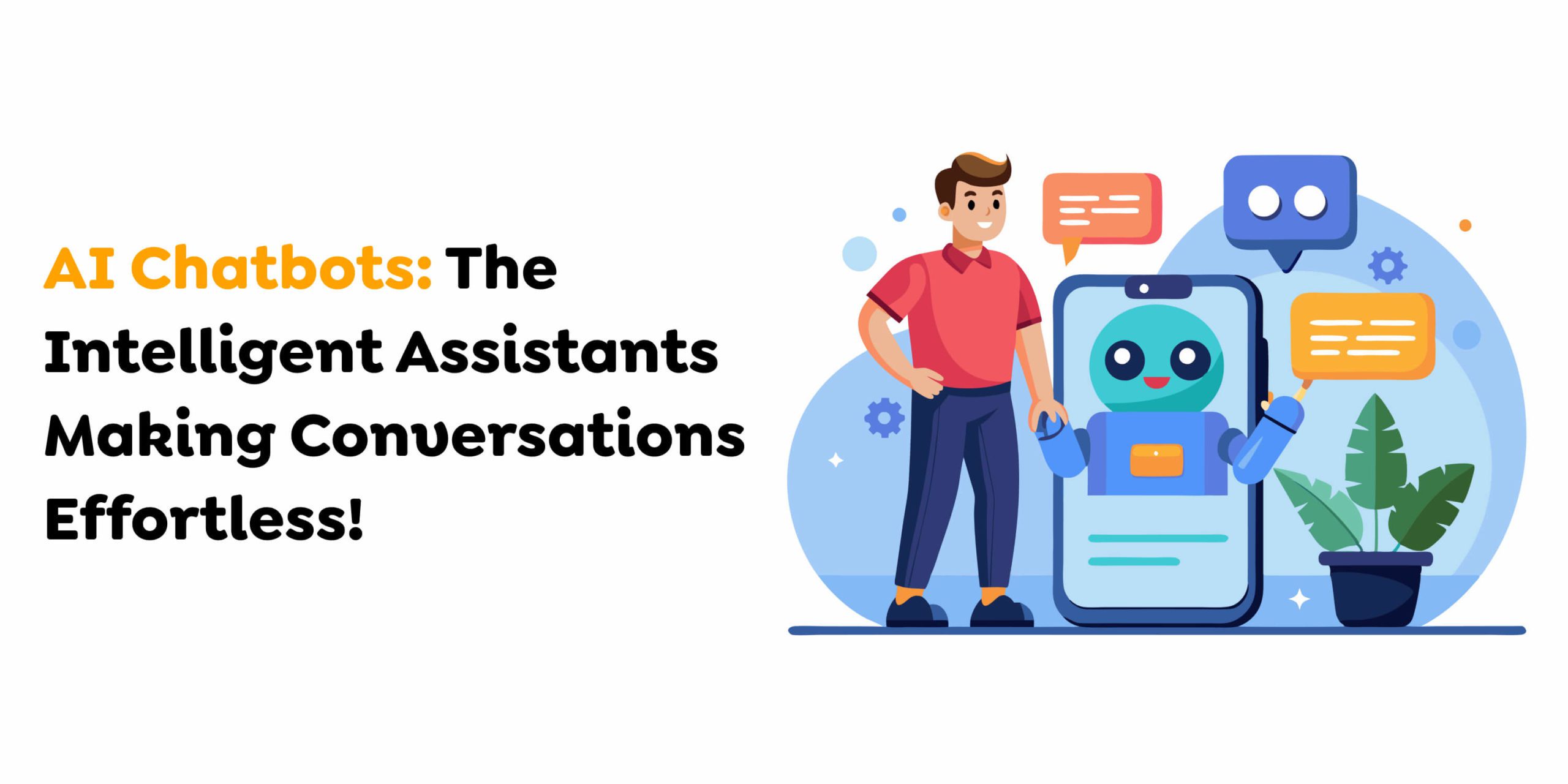
Various consumer applications and enterprise methods show increasing adoption of chatbots. Customers show a preference for using chatbots when they want to buy things. The technology behind chatbots continues to provide solutions that fulfill customers’ needs and upgrade their engagement experience.
47% of organizations plan to use chatbots for customer service, while 40% are interested in virtual assistants. New technological predictions suggest chatbots will use behavioral patterns to deliver enhanced customer support.
Now, let’s discuss the different types of AI chatbots.
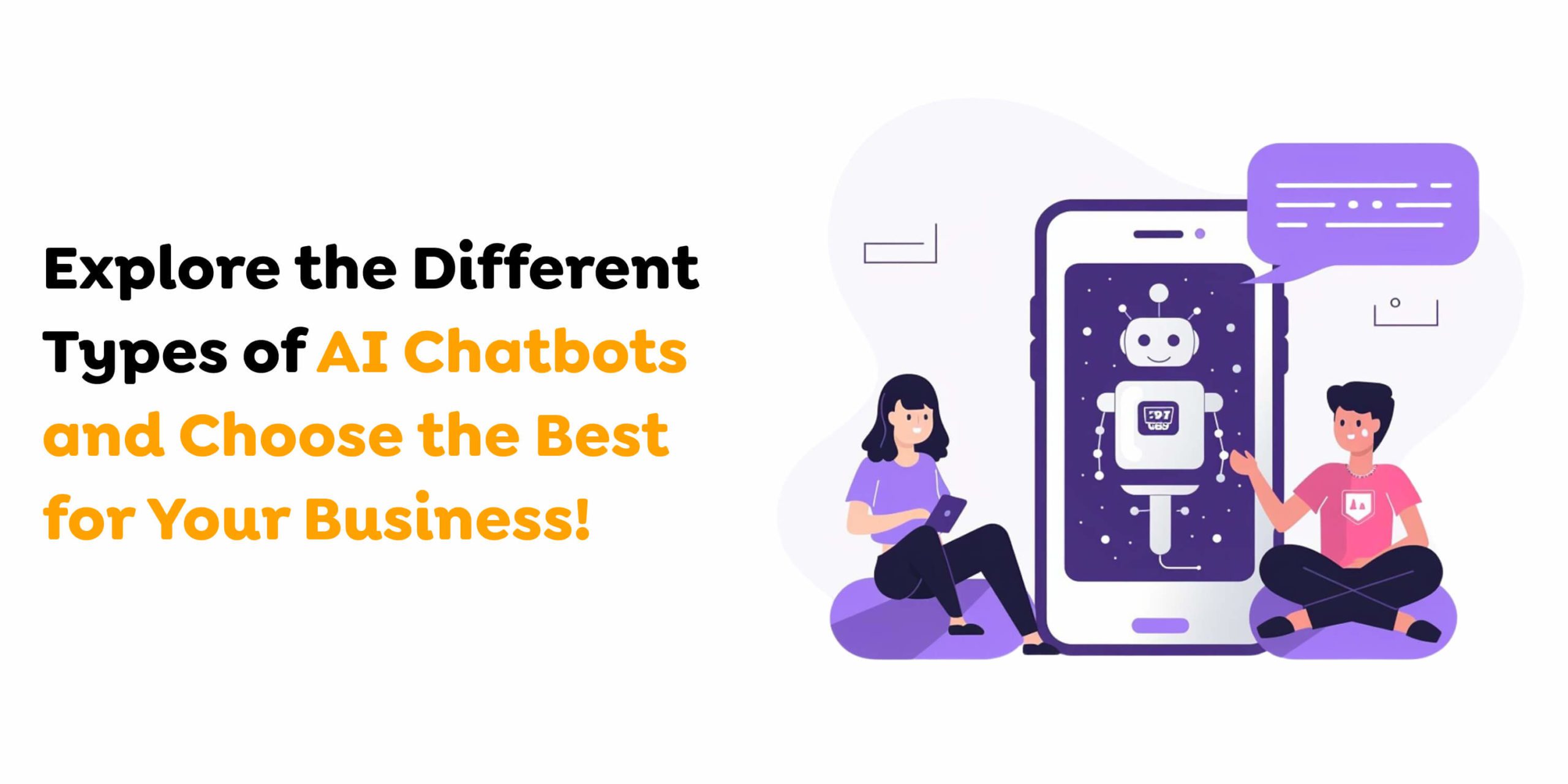
AI-powered chatbots leverage advanced technologies like machine learning (ML) and natural language processing (NLP) to deliver dynamic and intelligent interactions. Here are the types of chatbots that utilize AI:
These chatbots are at the forefront of artificial intelligence integration. Through NLP technology, these systems interpret input from users and analyze user intent to generate precise responses. Automation bots improve performance through user interaction and build their understanding base automatically over time. These tools demonstrate great flexibility by processing a range of inquiries with efficiency.
Interactive chatbots, designed for open-ended conversations, rely heavily on AI to mimic human-like interactions. They use NLP and contextual analysis to understand user intent and sustain engaging natural dialogues. These bots are often employed for user engagement, entertainment, and social interaction scenarios. If you’re looking to build one, partnering with a Generative AI app development company can help create advanced, responsive chatbots that adapt to various conversational contexts.
Although not all task-oriented chatbots use AI, those with advanced capabilities incorporate it to improve user experiences. For instance, AI-driven task bots can understand complex queries, process natural language requests, and provide personalized solutions, such as recommending tailored products or services.
While traditional response-based chatbots are rule-based, AI-enhanced versions utilize NLP to improve response accuracy. These bots analyze user inputs more effectively, ensuring that the most relevant predefined answer is selected from the database.
Moving forward, let’s explore how AI chatbot development is changing mobile app development services.
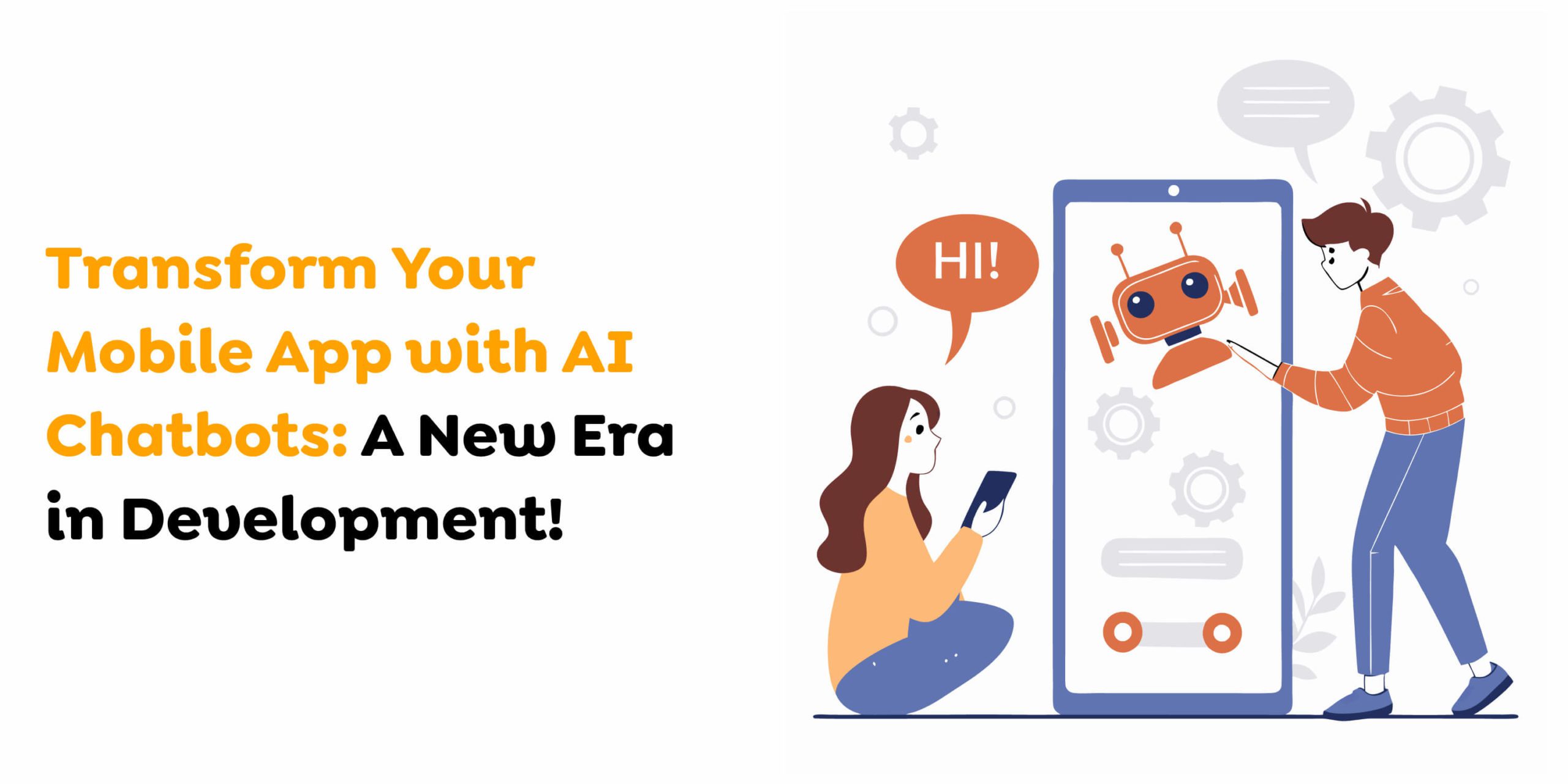
A Mobile app development company is embracing the new smartphone trends that target user attention. AI Chatbot app development also gets more user attention because users enjoy interacting with them using mobile apps. They are not afraid to voice their concerns and can ask for help again and again with a bot. This feature will transform the mobile app’s functionality in the future.
Here are some factors that will help you see how chatbots can transform your Mobile app-building services in the future.
App developers must be encouraged to contribute to app development and enable them to make the best use of their time and efforts. Chatbots are a great feature that can help you get the project done. Developers and app owners must promote the feature before and after it launches. App users may not have explored the app enough to recall all of its features.
A chatbot allows for the personalization of App Development. Only some visitors need to be contacted by the app owner. Each app user has a chatbot that they can use to ask questions and get answers. User queries are often very personal and can be quite different from each other. As a result, app users feel more connected with the online services offered by the app.
Mobile app development services remain popular because they are innovative. Compare the current mobile app functions to those from 10 years ago, and you’ll likely notice frequent app updates on your phone. One of the most impactful advancements is AI chatbot app development, which has revolutionized the way apps interact with users. The chatbot’s futuristic approach allows machines to understand customer issues effectively. For cutting-edge features like this, partnering with a ChatGPT app development company ensures your app stays ahead of the curve in delivering intelligent and responsive solutions.
Feedback and user issues often serve as security messages for app developers and app owners. Users are notified immediately if the app is under attack by malware or viruses. They may not be able to pinpoint the problem, but they can share their experiences with the App Development team. They could also discuss other issues with the App Owner and Maintenance Team if necessary. Of course, they can always use the chatbot to help!
App promotion can have an even more significant impact on the Mobile App Development cost. An AI chatbot app development company should review the budget and investment plan before it can build a mobile app or website. Or they could lose more money if they don’t generate a better ROI than the budget. Chatbot technology is able to help app companies recover more quickly than ever before.
App developers and companies are working hard to create more engaging apps that keep users on their sites for extended periods. Future versions of the same features could help increase conversions for online products and goods. AI Chatbot is changing the way that app creation services are created worldwide. To leverage this transformation, businesses can hire artificial intelligence developers to integrate cutting-edge solutions and stay ahead in the competitive digital landscape.
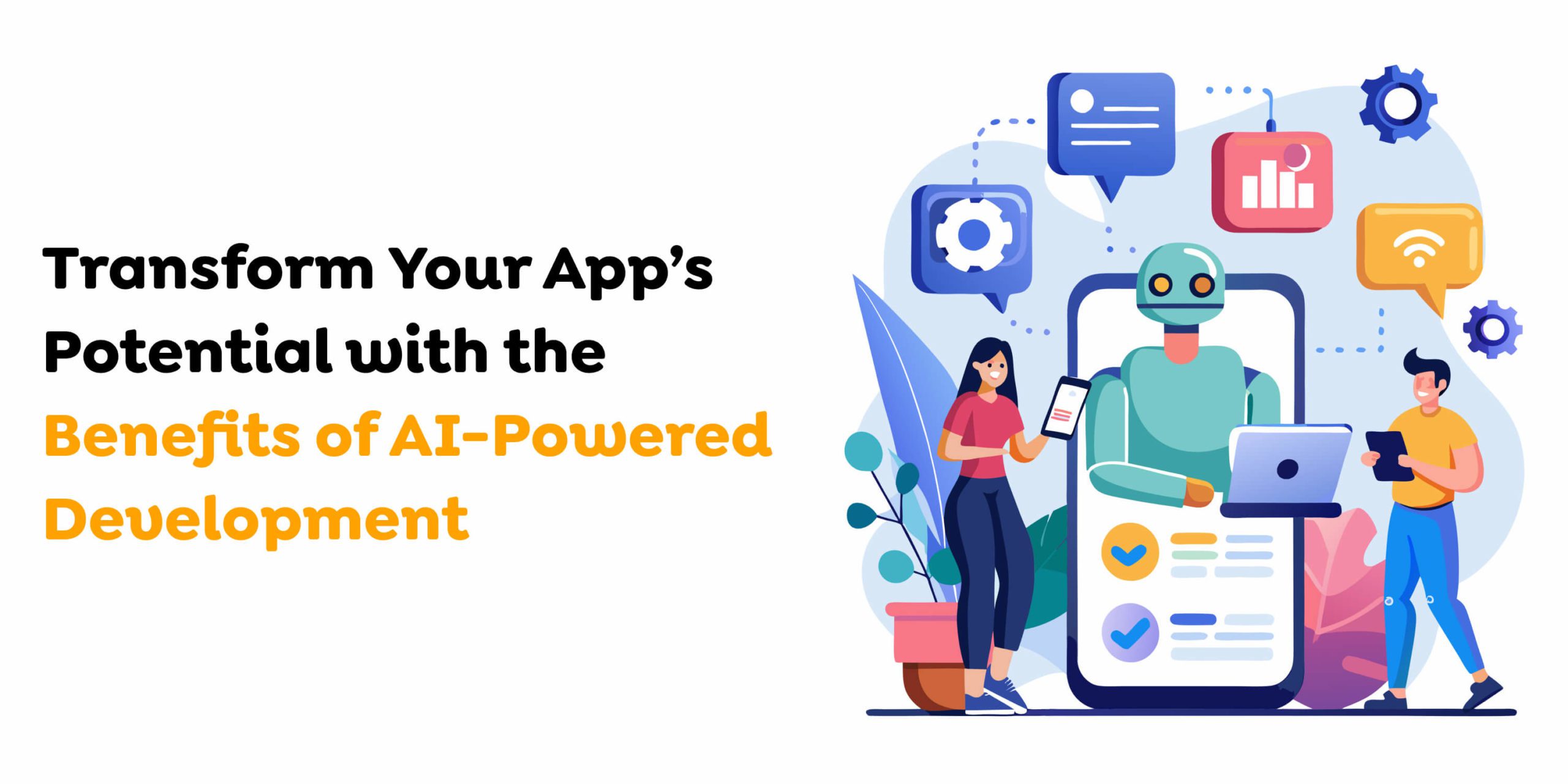
Your business strategic position will improve by transitioning to AI programming while developing implementation methods for daily operations. AI app development delivers diverse advantages because of its adaptable nature. Switching to AI will bring these advantages for companies:
After knowing the advantages of AI chatbot development, let’s delve into its implementation process.
Also Read : Who’s Winning the AI Battle: DeepSeek or ChatGPT?
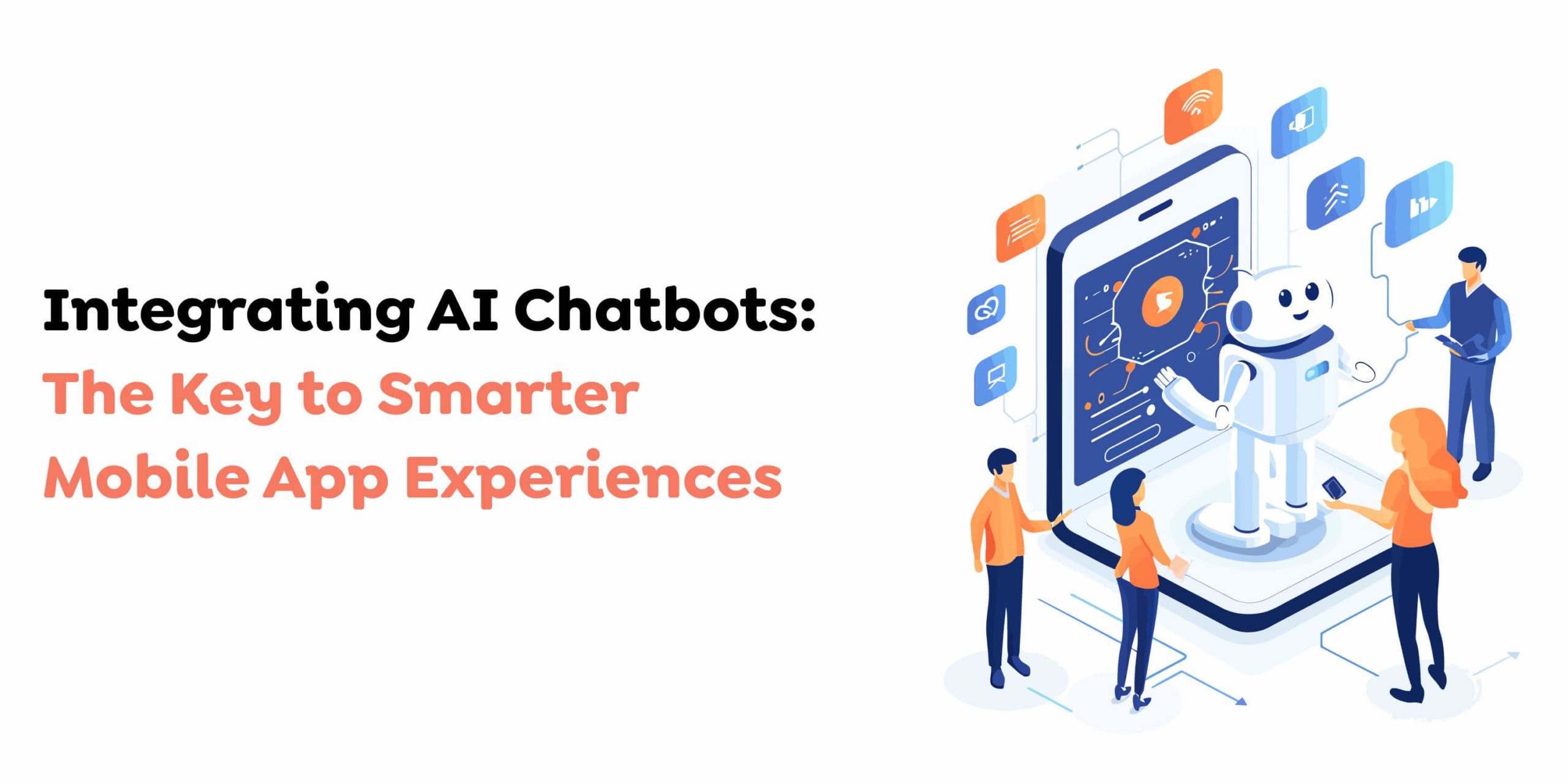
The process of incorporating AI into your mobile app development is likely to be similar to other software implementation projects. However, there are nuances that you need to consider to achieve a successful outcome. These are the six steps you should follow for AI chatbot app development:
Using AI algorithms to power all aspects of your application may seem appealing. However, it is important to prioritize the problems that this technology can help you solve. You will get the most out of it and avoid over-implementing.
Before you begin app development incorporating artificial intelligence, it is important to understand where your data comes from and which sources you should count. Then, you can leverage data analytics tools to manage your data and make it easier for the AI module to use.
AI can be used to improve your products, processes, and services. To assess the value of your app, you must set clear goals. Then, you can create the right functionality by knowing what you want with AI.
This is a crucial step and requires the involvement of engineers and developers with experience in AI technologies. Your team should have enough experience in both mobile and AI solutions design and be able to spot potential pitfalls and fix them quickly if they do.
Your AI-based application will likely fetch data from other sources or use third-party tools. This means that you must implement APIs or use custom integration technologies. There is a higher chance that APIs will only suffice for your app if it is more complex and intelligent.
You shouldn’t lose control of the solution’s performance. Instead, increase it. Your app should meet or exceed your expectations. You should monitor the metrics and quickly make any necessary changes to the algorithm or any other AI component.
For anyone wondering how to develop an AI chatbot, these steps will guide you through creating a successful AI-powered app.
Also Read : AI in Telecom: Unlocking Benefits, Real-World Applications, and Overcoming Challenges
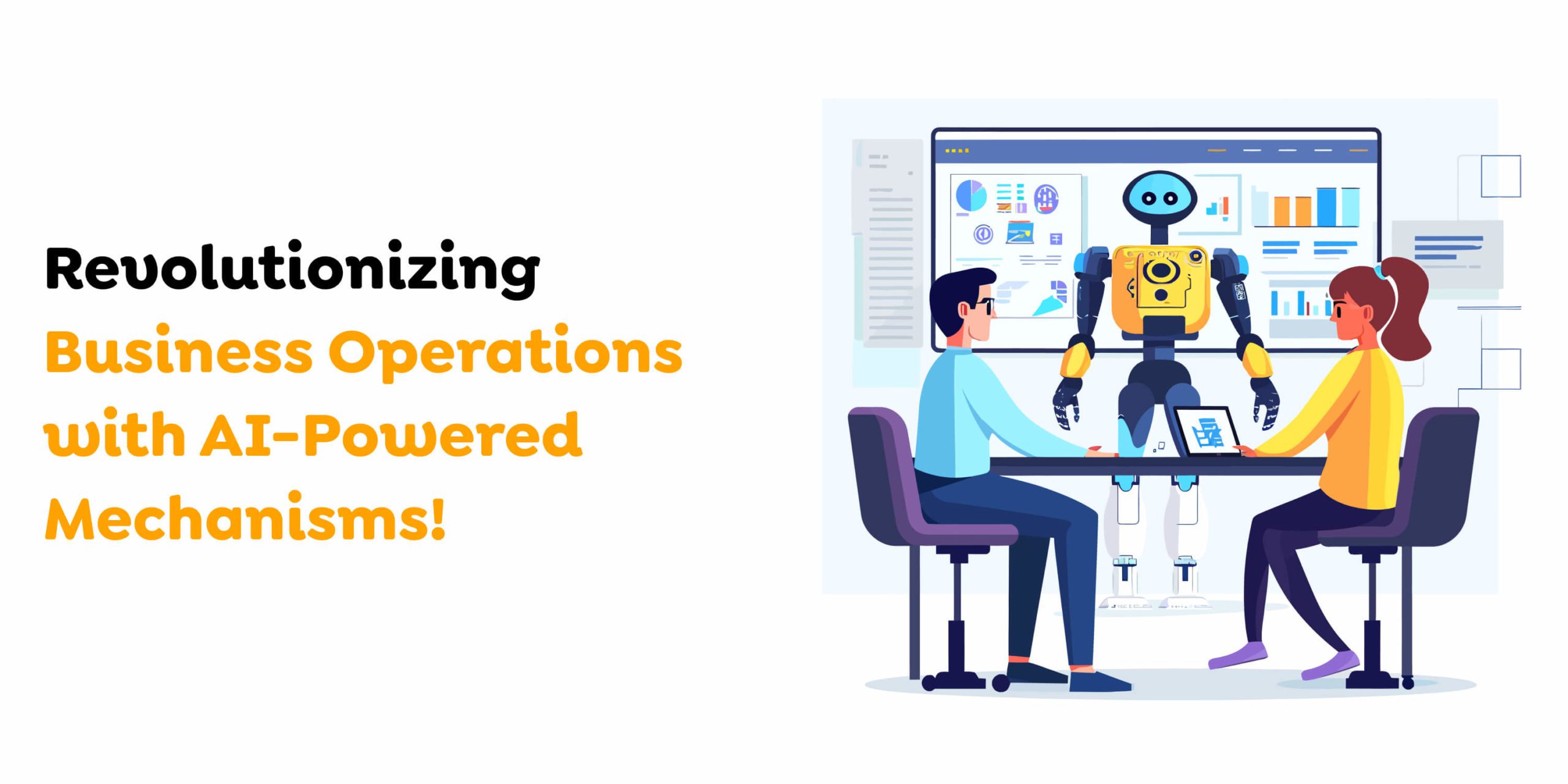
Artificial intelligence is a technology that benefits the financial industry. It has given banks and financial institutions new options to meet client demands for more innovative, safer, and practical ways of saving, investing, spending, and handling money.
Customers have control over their health and well-being. AI also improves healthcare workers’ ability to understand patients’ needs and regular patterns, allowing them to provide superior feedback, direction, and assistance in maintaining their health. Incorporating AI into healthcare can have many benefits. It automates processes and analyzes large patient data sets to deliver better care more efficiently and cost-effectively. Insider Intelligence estimates that 30% of healthcare expenses are related to administrative costs.
Artificial intelligence refers to video game adaptability and responsiveness. These AI-powered interactions are often created by NPCs (non-player characters) that act intelligently and imaginatively like a human gamer. AI determines an NPC’s behavior. It has been more important and influential since Garry Kasparov’s defeat by Deep Blue, an IBM computer program, in 1997. AI can be used in many ways to improve gameplay elements, behavior, and settings.
AI is used in national security both on the battlefield and off it. For example, the DOD employs a variety of artificial intelligence (AI), from simple business processes like analyzing financial data and foreseeing problems with weapon systems to performing detailed analyses to help it win wars.
AI in connected vehicles makes it easier for drivers to park and encourages ride-and-car-sharing. AI can reduce fuel consumption caused by stationary cars, improve air quality, and aid urban planning. AI has changed the way people see automobiles. Autonomous cars are now possible. While flying vehicles were once predicted, autonomous vehicles are now a reality. They can even transport passengers safely in an emergency. Because automation introduces intelligent systems to the transportation industry without human weaknesses, it is more common.
Smart urban solutions powered by artificial intelligence (AI) have many advantages. They include improved energy, water, and waste management and decreased noise and pollution.
Artificial intelligence may be used to monitor the impact of these cities on the environment, global warming, pollution, and other factors. Authorities and towns can then make informed decisions that benefit the environment using Machine learning and artificial Intelligence to reduce pollution and increase energy use.
AI software has many uses.
– Voice assistants
– Face recognition is required to unlock your smartphone.
– Machine learning-based fraud detection
Software with AI capabilities can also be downloaded from the Internet without additional hardware.
Also Read : Healthcare Chatbots: Promising a Patient Care Industry Transformation or a Failure?
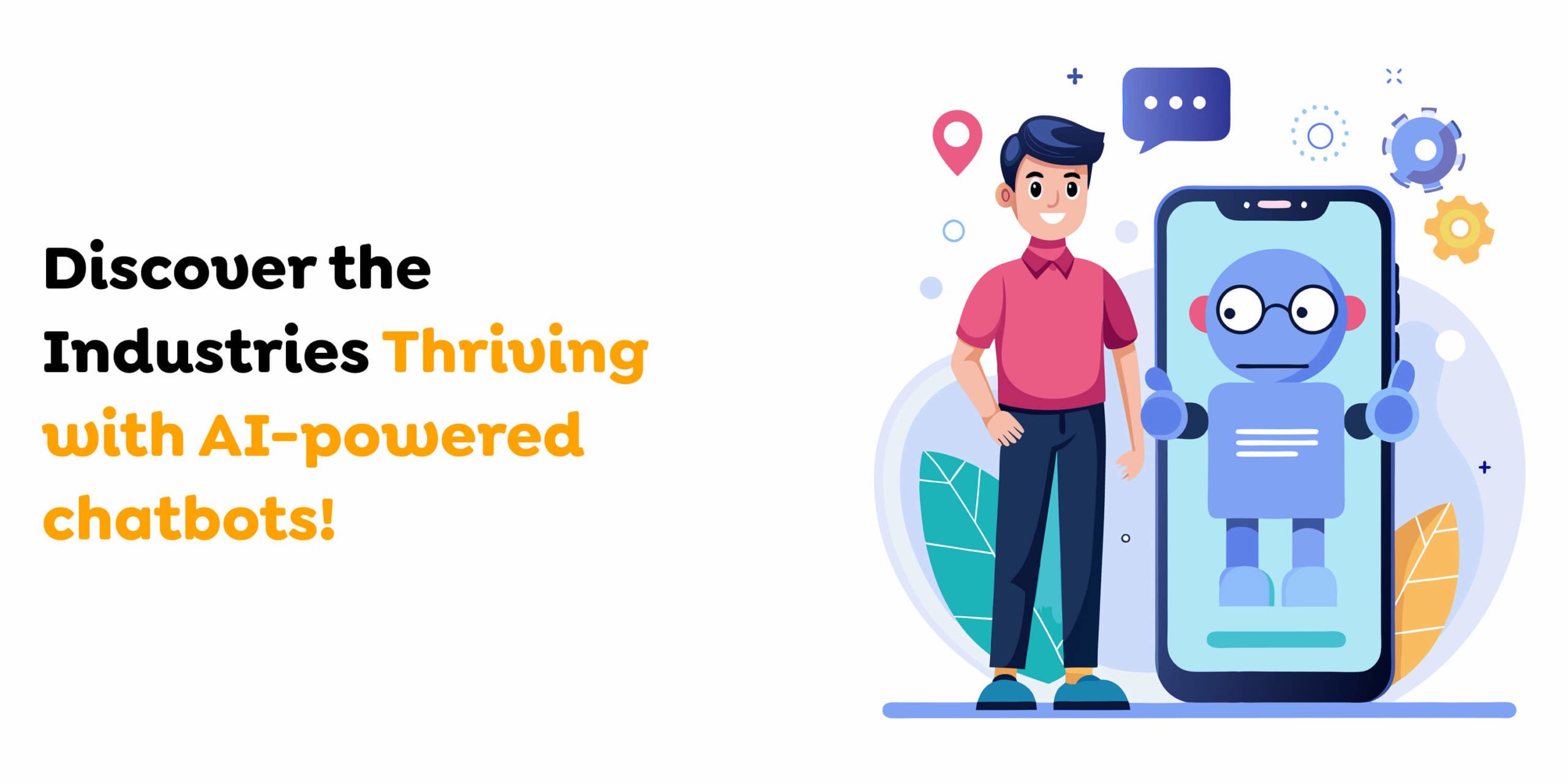
Banks must be careful about cybersecurity compliance under data compliance regulations.
Bots allow banks to automate customer service tasks.
Banks can use AI chatbots to automate banking tasks such as determining the interest rate for mortgage plans. For example, mortgage chatbots can collect personal information and interpret it as financial specialists.
Due to data protection regulations, chatbots can also be used in the insurance industry. Chatbots for insurance can assist customers in uploading documents and underwriting claims processing. They can also help customers upload documents and find policy information to lower operational expenses.
Hotels can benefit from chatbots being deployed on their custom applications. For example, Equinox Hotel’s chatbot answers customers’ queries and manages bookings.
Chatbots allow users to interact with ecommerce businesses. E-commerce companies can inform customers about the following:
– New products
– Get Discounts
– Information about delivery
Chatbots can also help e-commerce companies generate leads and recommend products.
Brands use conversational agents to diversify their customer engagement strategy. As a result, they enable businesses to engage their website visitors proactively and eventually sell more products.
More companies are looking for conversation designers who can create engaging chatbot scenarios. A well-written AI chatbot platform is a powerful tool for lead generation, as it can also collect subscribers, beta testers, and job candidates.
Sephora was one of the first brands to use a bot for their online service. The company uses it to educate customers about its cosmetics.
The AI assistant provides tutorials on makeup and skincare tips and allows customers to purchase products online. Customers can try out new makeup with AR technology through the company’s chatbot. Sephora now offers a personalized customer experience online and in-store.
Customers expect their problems to be resolved quickly and through their preferred channels. Chatbots allow customers to have their problems solved instantly and via the channels they prefer.
They are available to customers 24 hours a day, allowing them to resolve simple problems, make appointments, or file complaints. Mastercard is one example. The brand provides a Messenger bot to help customers check their transactions at any time.
Next Door Burger Bar uses conversational agents to assist customers in ordering online. As a result, companies can scale their customer service bots at a low cost while still meeting changing customer needs.
To increase the productivity of their support staff, brands automate customer communication. Smart agents can take over repetitive cases from live agents and function as the first-line customer support. In addition, they can help customers group themselves based on their issues and route them to agents when necessary.
Every customer must complete the sales funnel before purchasing a product. AI Chatbots online can guide customers through the sales funnel, from awareness to decision to action, through interest and decision. According to a study, businesses that use conversational interfaces in sales strategies can see up to 30% higher conversion rates.
By integrating social media platforms, brands can connect with many people through conversational interfaces. This increases brand awareness and enables brands to communicate with more users. National Geographic is one example. The company used a messenger bot to conduct a daily quiz.
This attracted people’s attention to the brand’s new ebook, Almanac. A bot created by the brand encouraged customers to buy Almanac by offering a 10% discount, which helped increase sales.
In education, AI chatbots are creating personalized learning experiences and providing instant support to students. They can answer subject-specific questions, recommend tailored study materials, and generate customized study plans based on a student’s progress. By making learning more engaging and accessible, chatbots are playing a significant role in modern e-learning platforms.
AI chatbots are also revolutionizing recruitment and HR processes by automating repetitive tasks and improving candidate and employee experiences. In recruitment, these bots handle initial candidate screenings, schedule interviews, and answer frequently asked questions from job seekers. For HR teams, chatbots simplify administrative tasks like processing leave applications, expense submissions, and policy-related queries. This technology saves organizations time and resources, ensuring effective communication with employees and applicants.
AI chatbot app development is transforming our lives in ways we might not even fully realize, and the possibilities are limitless. Incredibly, we are only scratching the surface of what AI can achieve. We are still in the early stages of AI’s dominance, but its impact is already profound. AI-powered apps continue to advance, offering personalized experiences and intelligent features. By enabling developers to create smarter and more efficient apps, AI is reshaping the future of technology. If you’re considering mobile app development, now is the perfect time to partner with an AI app development company to harness the full potential of this transformative technology.
Get in touch with Techugo today to learn more about AI chatbot development services and discover how we can create smart, interactive solutions for your business!
Write Us
sales@techugo.comOr fill this form